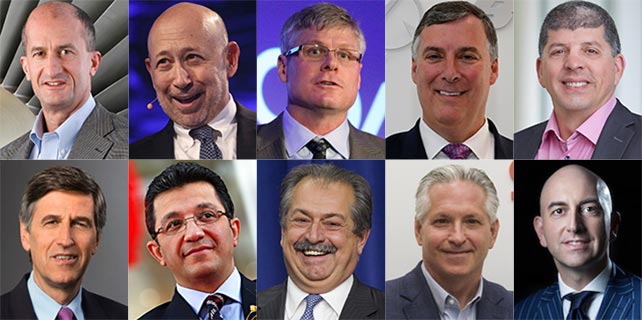Brexit in midway but breakthrough still far away
BRUSSELS -- With 504 days and less than 10 hours left before the March 29, 2019 deadline, Brexit passed its midway point on Friday.
But negotiators from the two sides of the English Channel tried in vain to bring the long-anticipated progress in their sixth round talks, giving rise to increasing fear of a no-deal scenario through Europe.
TIME IS DRAINING, SO IS BARNIER AND DAVIS' VOCABULARY
"Do not wait for us today, as we are, announcements or major decisions. The discussions of these last days are, in the moment we are, between two European Councils, a moment of deepening, of clarification, of technical work," European Union's (EU) chief Brexit negotiator Michel Barnier told reporters.
"Only sufficient progress, that is, sincere and real progress on the three key topics of this negotiation, will enable the second phase of our negotiation to begin," he reaffirmed, only managed to add "sincere and real" to avoid duplication with his previous speeches.
The three key issues are citizens' rights, a financial settlement and the Irish border, according to Barnier.
Time is ticking, but the deadlock remains.
"This is a serious business. If we are to find a way forward it will require flexibility and pragmatism from both sides as I think Michel also stressed," said Britain's Brexit Secretary David Davis during the joint press conference with Barnier at the EU headquarters.
Like his counterpart, his vocabulary for "flexibility and pragmatism" also seemed dry, and merely managed to add "This is a serious business" into his reaffirmation, which didn't make him more persuasive.
Kicked off in Brussels on Thursday, the two-day sixth round Brexit talks coincidently marked the halfway point for Brexit -- 505 days since the referendum and 505 days until Britain should formally leave the EU, and was tasked to make preparation for the EU Winter Summit in December.
PROGRESS IN MAJOR ISSUES BUT IN DRIBS AND DRABS
"On citizens' rights, we are making some progress; we need to work more on a number of points. The UK wants to put in place administrative procedures through which EU citizens can obtain 'settled status'. The EU needed reassurance on how such a system would work: it should be simple to use, and low cost. We also needed reassurance on how people, when rejected, can appeal effectively," said Barnier.
"There are a few areas where our citizens need to see further progress and movement from the European Union ...However, if it does fall out of scope, we will discuss this issue bilaterally with Member States," Davis warned.
On the Irish border, Davis said Britain recognize the need for specific solutions for the unique circumstances of Northern Ireland, but made clear that "This cannot amount to creating a new border inside our United Kingdom", calling for more spirit of pragmatism, creativity and with a high degree of political sensitivity form both sides.
As to the financial settlement, Barnier said the two sides "must now work on the precise translation of the commitments made in her speech in Florence by the British Prime Minister", calling it as an imperative condition to achieve sufficient progress in December.
"On this subject, I repeat that it is only, as in any separation, to settle the account," he warned.
The long-awaited Brexit talks was launched on June 19, nearly one year after Britain voted to leave the bloc by a narrow margin on June 23, 2016.
May sent a notification letter to the EU in late March, triggering a two-year countdown to Britain's withdrawal of the bloc after more than 44 years of membership.









